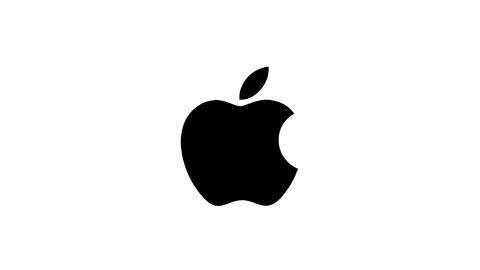Claire Huxley at Design Bridge and Partners on Apple’s much-rumoured potential entry into the smart TV market

Apple’s foray into the smart TV hardware market is not just another product launch – it’s a strategic leap that could crystalise its unique position as a leader in both the tech and entertainment industries.
With its brand stature, design philosophy and a highly loyal consumer base, Apple’s expansion into making its own smart TVs has the potential to disrupt the competitive home entertainment space. But how can Apple differentiate its offering and ensure its place as a leader in this increasingly crowded market?
Apple’s design philosophy has always set it apart, and there’s no chance that a TV set will prove an exception to this rule. We will all expect an Apple smart TV hardware to exude the same sleek minimalism and intuitive functionality that have become synonymous with Apple products; and it’s likely that the brand will deliver on this, making the device both aspirational and indispensable.
Apple’s approach to hardware is grounded in an uncanny ability to predict consumer needs and deliver a cohesive experience. Consider how the Apple Watch revolutionised wearables by combining health tracking, connectivity, and fashion.
A smart TV could follow suit, redefining what consumers expect from a television. Imagine a TV that blends seamlessly with home aesthetics, features cutting-edge technology like AI-driven content recommendations, and delivers an effortless user interface.
This design philosophy is what underpins its incredibly compelling device ecosystem. It has built a meticulously designed network of interconnected devices and services that offer unparalleled user experience. The Apple smart TV could become the linchpin of this ecosystem, seamlessly integrating with iPhones, iPads, Macs, and HomePods.
Users might control their TVs via Siri or stream personalised content through Apple Fitness+ or Apple Music, or use their Apple Watch to monitor screen time for their children. By building on the familiarity and convenience that its ecosystem already offers, Apple ensures its customers remain within its network, elevating brand loyalty and customer retention.
This strategy is particularly crucial as competitors like Samsung and Amazon vie for dominance in the same space. While Samsung manufactures TVs and Amazon leads in streaming services with Prime Video, neither controls the entirety of the experience. Apple’s ability to unify content, hardware, and software into a “one-stop shop” could set it apart. In this scenario, the Apple TV becomes more than a device - it’s a gateway to the entire Apple universe.
The Apple smart TV doesn’t just have the potential to join up the Apple ecosystem. Its introduction could also revolutionise what people expect from a truly connected home. As telcos and tech giants alike scramble to expand into smart home technology, Apple’s strategic entry into this space feels inevitable. By positioning the TV as a central hub for the home, Apple could extend its influence beyond entertainment into areas like home automation, security, and wellness.
Imagine using the TV to manage smart devices via Apple’s HomeKit, monitor your Nest thermostat, or receive fitness updates via Apple Fitness+. This convergence of functionality could make the Apple TV a cornerstone of the modern connected home, further embedding Apple into the daily lives of its customers.
Through launching TV hardware, the brand is also filling in some steps skipped when launching the Apple TV streaming service. It has already proven its ability to compete in the content space with its award-winning Apple TV+ shows like Ted Lasso and The Morning Show.
Streaming competitors, like Netflix for example, dominate content but don’t produce their hardware. Samsung excels in hardware but lacks its own compelling content offering. Apple’s ability to bridge this gap positions it uniquely to dominate the market. Exclusive partnerships with production studios or high-profile creators could amplify this advantage. And looking to the future, it could redefine the streaming landscape by offering interactive or immersive viewing experiences that take full advantage of its hardware including its already popular VR headset.
At the heart of this move lies a deeper question: what does Apple want to be? Is it a tech company, an entertainment giant, or both?
With its unparalleled ability to innovate across hardware and content, Apple is uniquely positioned to straddle these worlds. Its smart TV could be the perfect manifestation of this dual identity, offering a glimpse into the future of entertainment while solidifying Apple’s dominance in hardware.
For Apple, the TV isn’t just a lucrative revenue stream; it’s a strategic touchpoint that reinforces its brand, strengthens its ecosystem, and cements its position as a leader in technology and entertainment. Whether it’s through exclusive shows, groundbreaking design, or seamless integration, Apple’s smart TV has the potential to do what the company does best - just as the iPhone did to mobile phones and what the Apple Watch has done for wearables - redefine the rules of the game.

Claire Huxley is strategy director at Design Bridge and Partners








No comments yet